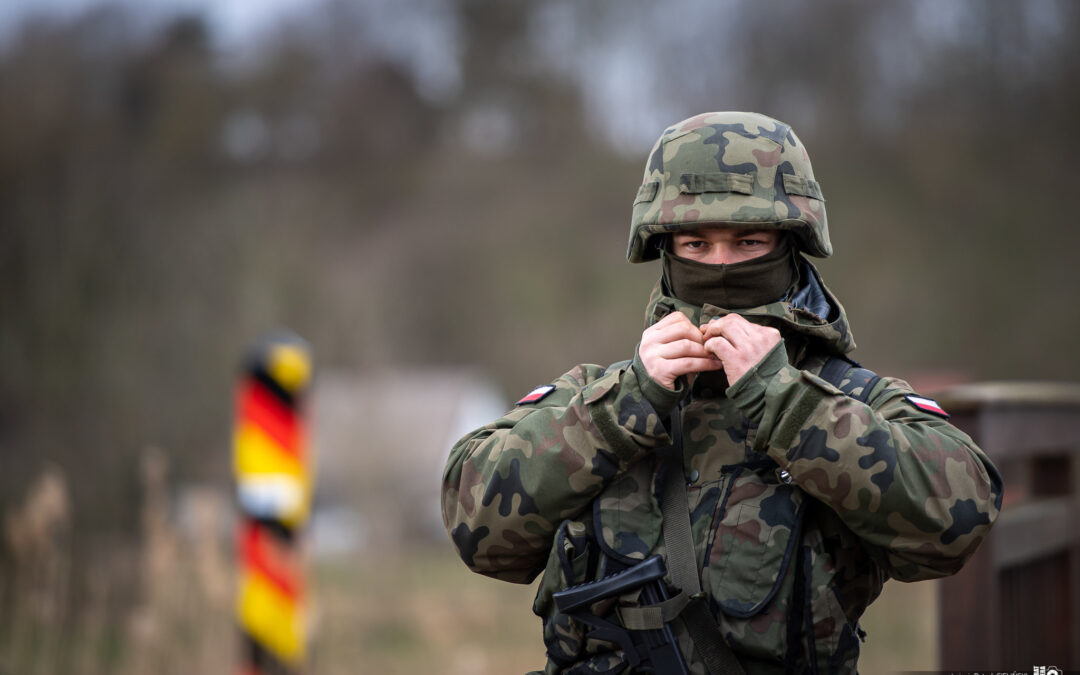The Polish-German border could “collapse” unless temporary controls are introduced as increasing numbers of people from the Middle East and Africa enter Germany after arriving from Belarus via Poland, the head of the German federal police union has warned.
The situation is so serious that it could result in “uncontrolled immigration” similar to the crisis of 2015, he wrote in a letter to Germany’s interior minister.
Journalists from @outrid3rs travelled across 7 countries following the path of the thousands of migrants from the Middle East who have been seeking to enter the EU via Belarus, whose authorities help them cross the borders into Poland, Lithuania and Latvia https://t.co/6qU0Sjr5OW
— Notes from Poland 🇵🇱 (@notesfrompoland) October 19, 2021
Recent months have seen a surge of people crossing from Belarus into Poland, as well as to Lithuania and Latvia. The Polish border guard has prevented over 10,000 attempted crossings and detained more than 1,500 people who have entered Poland. But many others have managed to get through to Germany.
Last week, the German police reported that over 4,300 migrants – largely from Iraq, Syria, Yemen and Iran – have entered the country from Belarus via Poland since August.
The number of entries to Germany has been increasing “almost explosively” in recent months, Heiko Teggatz, head of the German federal police union, which also represents the country’s border guards, wrote in a letter to interior minister Horst Seehofer quoted by Bild.
A “collapse” at the border similar to the one seen during the refugee crisis in 2015, can only be prevented by the “introduction of temporary border controls with Poland”, he warned.
The number of arrivals from Poland has already reached the level seen on the German-Austrian border in the early stages of that crisis, which reached a “sad climax” with the “uncontrolled entry of migrants to Germany”, Teggatz added. “A repeat of this should not be allowed.”
The police union chief admitted that temporary border controls are not sufficient in themselves to resolve the crisis, as “the dictator Alexander Lukashenko, by organising human trafficking at state level, is reacting to the EU sanctions”. But “Europe must not get involved in these games,” he argued.
Teggatz’s letter also warned that the situation is endangering officers’ health. “SARS-COv-2 infections, especially in the migrants’ countries of origin…are still numerous and seldom recorded by the authorities”, and the necessary sanitary precautions are not enforced while people are being smuggled across borders, he wrote.
The German government and commentators agree that Lukashenko is responsible for causing the current crisis on the EU’s eastern border, reports Deutsche Welle. But there has also been criticism of Poland’s policy of sending border-crossers back to Belarus.
“Lukashenko is artificially engineering a migrant crisis” and Poland is within its rights to protect its borders, but is not being transparent in its actions, Alexander Graff Lambsdorf of the liberal FDP party told ZDF, in quotes carried by Deutsche Welle.
“The Poles are wrapping everything in secrecy, which of course leads to speculation on what is happening there. And that is not good,” Lambsdorf said, comparing Poland unfavourably with Lithuania, where journalists, the EU border agency Frontex and European Commission observers have access to the area.
By contrast, a state of emergency declared by Poland on its border with Belarus bans non-resident civilians – including the media and NGOs – from entering the area. The government has said this is necessary to tackle the unprecedented crisis.
But domestic and international critics have accused it of seeking to prevent scrutiny of its actions on the border, which have including sending migrants back into Belarus. That would be a violation of international law if the people are claiming asylum, say NGOs.
Main image credit: Combat Camera Poland/Flickr (under CC BY-NC 2.0)

Ben Koschalka is a translator, lecturer, and senior editor at Notes from Poland. Originally from Britain, he has lived in Kraków since 2005.




















